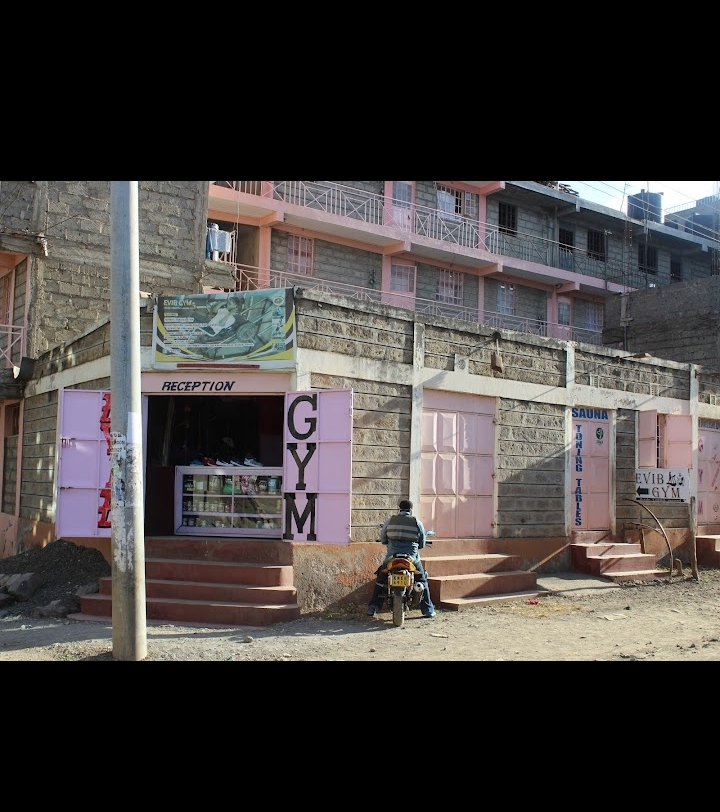Bodybuilding has a long and storied history, tracing its origins back to ancient Rome (105 BCE to 404 CE). Captured prisoners of war and slaves were trained in gladiator schools to fight in the Coliseum, where survival depended on strength and agility. Gladiators were fed a protein-rich diet of vegetables, barley, legumes, and meat to build muscle. Their rigorous training included stone lifting, sparring with heavy weapons, and endurance running.
Modern bodybuilding, however, has its roots in the 1960s when icons like Reg Park and Steve Reeves transitioned into Hollywood and Italian cinema. Their on-screen physiques inspired a generation of young bodybuilders, including a young Arnold Schwarzenegger in Austria, who later became the face of the sport.
The late 1970s and 1980s brought the American lifestyle, facilitated by Hollywood, to Nairobi. The action movie genre popularized a fascination with muscular physiques, particularly among young men in Nairobi’s residential estates. Action stars like Arnold Schwarzenegger, Sylvester Stallone, Dolph Lundgren, and Bolo Yeung captivated audiences with their sculpted bodies, sparking an interest in bodybuilding.
This surge in interest led to the establishment of the first locally owned gym in Majengo in 1978, which remains operational today. The following year, another gym opened in Shauri Moyo, and Steel Gym was established in May 1980 near Pangani police station.
Despite its popularity in Nairobi’s Eastlands areas, bodybuilding was often associated with the lower middle class and lacked mainstream support. A key figure during this period was Mickey Ragos, who competed in the prestigious Mr. Olympia competition alongside legends like Arnold Schwarzenegger and Lee Haney. However, the sport remained niche, largely overshadowed by societal stereotypes.
In the 1990s and early 2000s, bodybuilding became part of Nairobi’s urban culture. Gyms began to appear in the Central Business District (CBD), with the first on Luthuli Avenue and another on Moi Avenue shortly after. This era saw bodybuilding gain more widespread appeal, aided by the popularity of the World Wrestling Federation (now WWE). Wrestling’s local fanbase helped demystify bodybuilding as a sport exclusively for certain ethnic groups, such as the Luo, whose genetics were often seen as advantageous.
The rise of chronic lifestyle diseases also raised awareness about the importance of fitness. Additionally, Kenyans in the diaspora began investing in gyms and fitness spas, further propelling the industry. Bodybuilders like multiple Mr. Kenya winner Lee Lihanda elevated the sport’s profile. His eloquence and ability to articulate issues during interviews helped shift public perception, presenting bodybuilding as a sport with class and sophistication.
The 2010s ushered in the social media era, transforming bodybuilding from a niche “dungeon sport” into a mainstream activity embraced locally and internationally. Influencers like IFBB competitor Evelyn Owala have shattered stereotypes, proving that bodybuilding is not a male-only domain. Owala’s international success has brought global recognition to Kenya’s bodybuilding scene.
The sport’s growing popularity has attracted investments from international gym franchises like Afro Fit, Easy Gym, and Crunch Fitness. Additionally, domestic investments have surged, particularly in residential estates where gyms have become more common. Unlike earlier years, when competitions were limited to Mr. Kenya (Nairobi) and Mr. Mamba (Mombasa), numerous bodybuilding contests now take place across the country.
Bodybuilding is no longer confined to urban centers. In rural areas, enthusiasts are creating makeshift weight-lifting equipment to participate in fitness activities. This expansion signals the growing acceptance of bodybuilding in modern Kenyan society.
From its ancient roots to its current trajectory, bodybuilding continues to evolve, breaking stereotypes and inspiring a new generation. The future looks bright for this ancient sport as it cements its place in Kenya’s cultural and fitness landscape.
John Maina Githinji is a Socio-Economic and Political Analyst


